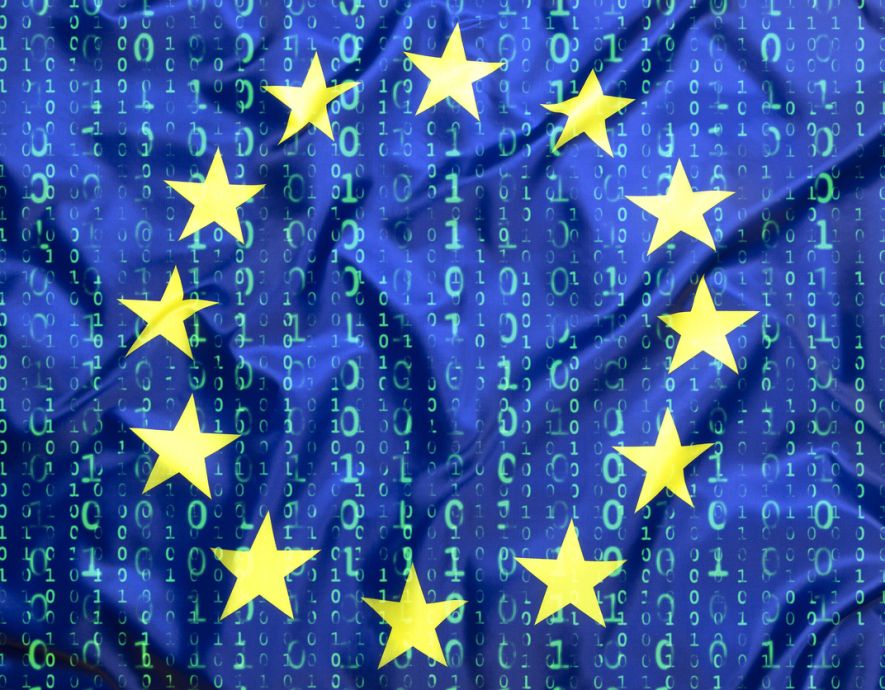
- Home
- Digital Sovereignty
- Act No. 2021-1485 to reduce the environmental footprint of the digital sector in France
Act No. 2021-1485 to reduce the environmental footprint of the digital sector in France


The law is an illustration of the convergence between the digital transformation and the ecological transition. It is inspired by the information report drawn up by two senators, dated 24 June 2020[1], which stresses that « digital technology is the blind spot of environmental and climate policies. »
This report was based on a study containing figures on the carbon footprint of the digital sector in France[2], its particularities in relation to global trends, and its evolution by 2040: « In France, the digital sector is a major source of greenhouse gas emissions (15 million tonnes of CO2 eq., i.e. 2% of total emissions in 2019), which could increase considerably in the coming years if nothing is done to reduce the sector’s impact (+60% by 2040, to reach 24 Mt CO2 eq. »
In 2040, according to this study, « if all other sectors make carbon savings in line with the commitments of the Paris Agreement and if no public policy of digital sobriety is deployed, the digital sector could account for almost 7% (6.7%) of France’s greenhouse gas emissions—a level well above that currently emitted by air transport (4.7%). This growth would be driven in particular by the rise of the Internet of Things (IoT) and the emissions from data centres. The collective cost of these emissions could rise from 1 to 12 billion euros between 2019 and 2040. »
The digital sector is therefore not neutral for the environment and public health. While it is still in its infancy, we must reconcile its growth with the requirements of sustainable development. The issue is not only about the production of CO2—a greenhouse gas—but also about the impact on water, the environmental consequences of the exploitation of rare earths, the repercussions on the health of people who recycle our digital waste in uncontrolled conditions, except for organised crime…
The law of 15 November remains modest in its ambitions. It is based on five main ideas:
- Make users aware of the environmental impact of digital technology;
- Limit the renewal of terminals;
- Promote the emergence and development of ecologically sound digital practices;
- Promote energy-efficient data centres and networks;
- Promote a responsible digital strategy in the territories.
Making users aware of the environmental impact of digital technology
This awareness requires training in « digital sobriety, » which must be taught from a very young age at school as well as at the start of university, from the start of the academic year 2022 (Art. 1 and 2). Engineering courses will also have to include a module on the eco-design of digital services and digital sobriety (Art. 3). These provisions are a step in the right direction. However, as proposed in the FIC Agora’s white paper[3], no diploma should be awarded without ad hoc training in cybersecurity, which should naturally include an environmental component.[4]
Knowledge of environmental impacts will be facilitated by the work made public by the new Observatory of the Environmental Impact of the Digital Sector, whose mission is to « analyse and quantify the direct and indirect impacts of the digital sector on the environment, as well as the contribution made by digital technology—and more particularly artificial intelligence—to the ecological and solidarity-based transition. » This Observatory is placed under the authority of ADEME (French Agency for the Environment and Energy Management) and of ARCEP (Regulatory Authority for Electronic Communications, Postal Services and Press Distribution), which jointly provide the secretariat. Within the framework of its missions, the Observatory may call upon researchers and qualified personalities.
Limiting the renewal of terminals
The aim is to extend the life of products, as the manufacture of digital terminals (smartphones, tablets, computers, etc.) accounts for 70% of the carbon footprint of the digital sector in France. The law reinforces the offence of programmed obsolescence, fights against software obsolescence, encourages reconditioned offers, encourages national collection operations accompanied by a return bonus for individuals who bring back equipment they wish to dispose of.
The law completes Article 55 of Act No. 2020-105 of 10 February 2020 on circular economy and the fight against waste with two paragraphs that read:
« As of 1 January 2023, when publicly procuring digital products with a reparability index, state services as well as local authorities and their groupings shall take into account the reparability index defined in Article L. 541-9-2 of the Environmental Code. »
« As of 1 January 2026, when publicly procuring digital products with a sustainability index, state services as well as local authorities and their groupings shall take into account the sustainability index defined in the same Article L. 541-9-2. »
This is a way of directing public procurement towards more virtuous products.
Promoting the emergence and development of ecologically sound digital practices
ARCEP and the CSA (French Higher Council for the Audiovisual Sector), in conjunction with ADEME, are defining the content of a general reference framework for the eco-design of digital services with sustainable design criteria to reduce their environmental footprint. « These criteria concern in particular the display and reading of multimedia content to limit the use of strategies to capture the attention of users of digital services. »
Promoting energy-efficient data centres and networks
The law reinforces the environmental conditions that will—as of 2022—govern the reduced rate of the domestic tax on final consumption of electricity (TICFE) applicable to data centres. To benefit from such rate, these facilities must:
– make use of waste heat, in particular through a heating or cooling network, or comply with a quantified indicator determined by decree over a multi-year period regarding efficiency in the use of power;
– comply with a quantified indicator determined by decree over a multi-year period regarding the limitation of water use for cooling purposes.
Promoting a responsible digital strategy in the territories
Territorial climate-air-energy plans (PCAET), are planning tools aimed at mitigating climate change, developing renewable energies, ensuring air quality, and controlling energy consumption. They must include the issue of heat recovery at data centres. Municipalities with more than 50,000 inhabitants and public establishments of inter-communal cooperation having their own tax system and more than 50,000 inhabitants must define—by 1 January 2025 at the latest—a responsible digital strategy that indicates, in particular, the objectives for reducing the environmental footprint of the digital sector and the measures implemented to achieve them.
By 1 January 2023, they shall draw up a work programme that includes, in particular, an inventory of the players involved and a reminder, where applicable, of the measures taken to reduce the environmental footprint of the digital sector.
The responsible digital strategy shall be the subject of an annual assessment as part of the report on the sustainable development situation provided for in Article L. 2311-1-1 of the General Code for Local Authorities.
***
The law is only the « first chapter » of a body of law that will necessarily become more dense. Between exploiting the ecological argument put forward by those who would like to hinder the development of digital technology and adopting a laissez-faire approach, there is a balance to be found.
[1] Information report No. 555 (2019-2020) by Guillaume Chevrollier and Jean-Michel Houllegatte, on behalf of the Committee on Regional Planning and Sustainable Development, submitted on 24 June 2020.
[2] Study on the evaluation of public policies conducted to reduce the carbon footprint of digital technology (June 2020), carried out by Citizing, Hugues Ferreboeuf, and KPMG, at the request of the Senate’s Committee on Regional Planning and Sustainable Development.
[3] « Making Cybersecurity the Cornerstone of European Digital Sovereignty« , proposal No. 2, Avisa Partners-Gendarmerie nationale, 9 September 2021, www.forum-fic.com
[4] The cybersecurity offer must be virtuous. Environmental criteria must condition choices and guide public procurement.
the newsletter
the newsletter


